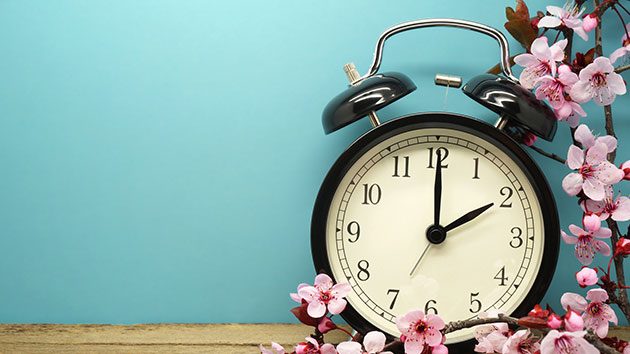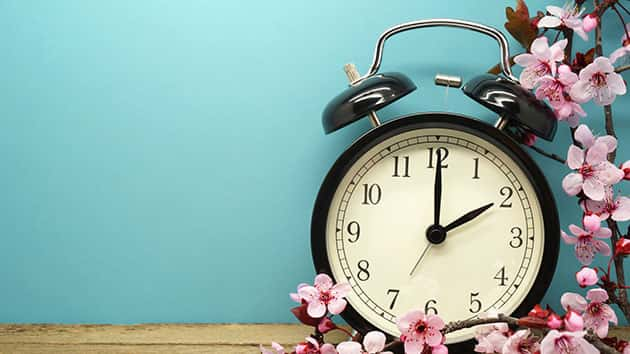
iStock/Thinkstock
 iStock/Thinkstock(NEW YORK) — If you’re dreading the start of Daylight Saving Time this weekend, here are a few tips from experts on how to ease into your new schedule without wanting to break your alarm clock.
iStock/Thinkstock(NEW YORK) — If you’re dreading the start of Daylight Saving Time this weekend, here are a few tips from experts on how to ease into your new schedule without wanting to break your alarm clock.
Eat Dinner Early
Our sleep cycle is impacted by our appetite, so try eating earlier if you want extra shut-eye before the start of Daylight Saving Time.
Dr. Alcibiades Rodriguez, assistant professor in the Neurology Department at the New York University Langone Comprehensive Epilepsy Center-Sleep Center, said finishing dinner an hour earlier than normal will help prime you to expect bed earlier.
“We have a circadian rhythm [that] is coinciding with the time we eat,” he explained. “We need to coincide our sleep pattern with our eating pattern.”
Use a Light Box to Ease Into the Day
Shifting an hour will mean more light at the end of the day, but also waking up when it’s a little darker outside. Rodriguez explained that sunlight primes the body to wake up.
“It’s going to be more difficult for people to wake up,” Rodriguez said of the days immediately after Daylight Saving starts.
People who have extreme difficulty getting out of bed can try a specially designed alarm that slowly brightens as you wake up, Rodriguez said, noting it can help mimic the feeling that it’s daylight outside.
Take an Afternoon Nap
If you’re unlikely to be able to go to bed early the night when Daylight Saving kicks in, you can take a nap so that you’re not exhausted the following day. Dr. Charles Czeisler, chief of sleep medicine at Brigham and Women’s Hospital, said many people are not going to be able to get to bed too early.
“Many people they go to bed at usual time and they lose an hour of sleep and many different physiological systems are affected by that loss of sleep and the shift of circadian rhythm,” he explained. “It’s harder to reset to earlier hours.”
He pointed out that even though Daylight Saving Time means losing just one hour, it has large health consequences. Czeisler said that heart attack risk goes up 5 percent and motor vehicle crashes go up 17 percent immediately after Daylight Saving Time starts.
Avoid Screens Before Bedtime
Experts have advised the sleep-deprived to avoid screens before bed for years, but the advice is even more important when Daylight Saving Time kicks in. Czeisler points out reducing time in front of the TV, computer or smartphone will help restless sleepers get extra shut-eye before losing an hour.
“You can turn down intensity in screens or ideally turn them off and just be mindful,” Czeisler said.
He said losing sleep puts extra stressors on different points of the body so it’s extra important to be proactive when Daylight Saving starts.
“The systems that are affected by sleep loss are affected by inflammation,” he said, pointing out the immune system, cardiovascular system and appetite hormones can all go haywire without enough sleep.
Copyright © 2017, ABC Radio. All rights reserved.


